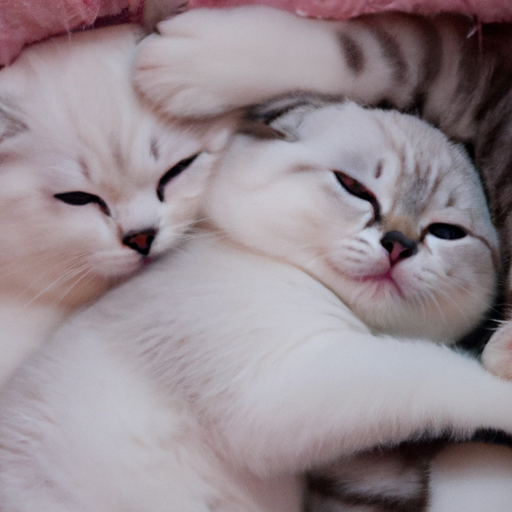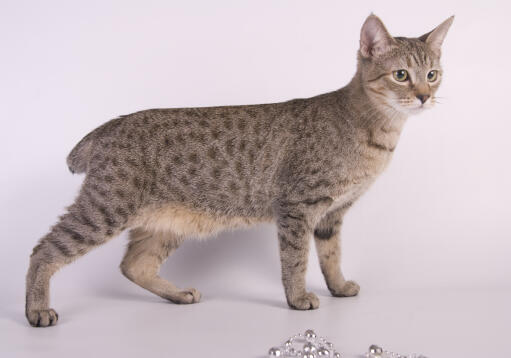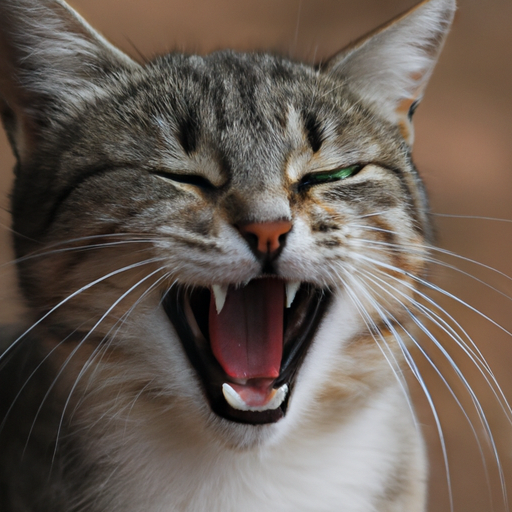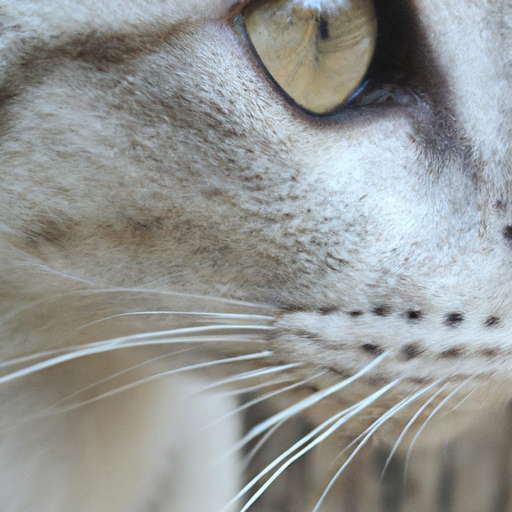Cornish Rex
Get ready to experience the world of the Cornish Rex, a cat breed beyond the ordinary, that stands out with its unique features and charming personality. Known for its distinctive velvety coat of tight curls, it’s not just its looks this breed boasts about. With their playful and lovable characteristics, you will not only discover their energetic pursuits but also their affectionate and loyal side. In this article, you’ll get to explore the compelling attributes that make the Cornish Rex not just a charming pet, but an ideal companion.
Origin and History of Cornish Rex
Emergence of Cornish Rex breed
You might be curious how the Cornish Rex, with its distinctive wavy coat, came into existence. It owes its origin to a genetic mutation that occurred in the 1950s. Specifically, in 1950, on a farm in Cornwall, England, a kitten with an unusual coat was born in a litter of barn cats. This kitten, named Kallibunker, had a tight, curly coat, large ears, and a slender body – qualities quite distinct from the typical domestic shorthair. Recognizing that Kallibunker was unique, the owner decided to breed him.

Initial breeding and spread
The breeding program started by mating Kallibunker with his mother, which consequently resulted in two more kittens with a similar curly coat. These cats were then crossbred with various other breeds, resulting in the beautiful Cornish Rex we know today. The breed quickly attracted interest and made its way across the Atlantic to the United States in the 1950s. There it was embraced by breeders who then further developed and popularized the breed.
Modern Status and Popularity
Currently, Cornish Rex cats are recognized and adored worldwide. Their playful personalities and low-maintenance grooming needs make them a popular choice for cat lovers. They’re recognized by most major cat registries and are often seen stealing the show at cat shows. However, their unique genetics also make them relatively rare compared to other breeds.
Physical Characteristics of Cornish Rex
Size and Weight
When you first see a Cornish Rex, you’ll notice its slender, muscular body. These cats are on the small to medium side, usually weighing between 6 and 10 pounds. Regardless of their size, they’re full of energy and can be surprisingly agile and spry.
Coat and Colors
One of the defining features of the Cornish Rex is its peculiar coat. Unlike most breeds, the Cornish Rex only has the undercoat, also known as down fur, which grows in tight waves – giving them a unique, curly appearance. This coat can come in a wide range of colors and patterns, from solid white to black, and everything in between.
Head, Ears, and Eyes Description
The Cornish Rex’s head is often described as egg-shaped, with high cheekbones and a strong chin. Their eyes are medium to large, oval-shaped, and can be of any color, often reflecting their coat color. Their ears are quite remarkable – large and set high on their heads, giving them an alert and playful expression.
Cornish Rex Temperament and Personality
General Behavior
Cornish Rex cats are often described as “dog-like” due to their playful and outgoing personalities. They crave attention and love from their owners and are known for their high energy levels. They’re curious and adventurous and are often found exploring their surroundings, climbing on furniture, or engaging in playful bouts.
Interaction with Humans
This breed is known for forming strong bonds with its human family members. They’re incredibly affectionate and love to spend time interacting with their owners – whether that’s playing fetch, lounging on laps, or snuggling under the covers. They’re also quite social and don’t like being left alone for long periods.
Interaction with Other Pets
Despite their love for humans, Cornish Rex cats aren’t antagonistic towards other pets. They usually get along quite well with dogs and other cats, especially if they’re introduced slowly and in a controlled environment. Their friendly and welcoming demeanor usually shines through, and they often become fast friends with other four-legged family members.
Health and Lifespan of Cornish Rex
Typical Health Issues
Cornish Rex cats are generally healthy, but they’re prone to certain genetic health conditions such as hip dysplasia and patellar luxation (a dislocation of the kneecap). Some may also suffer from hereditary baldness or have skin conditions due to their lack of traditional fur.
Average Lifespan
The Cornish Rex typically enjoys a relatively lengthy lifespan for a cat. Most live between 11 and 15 years, but some have been known to live into their late teens with proper care and regular vet visits.
Healthcare Recommendations
Because of their unique coat, the Cornish Rex tends to be more sensitive to cold temperatures. They should be kept indoors and provided with warm spots to lounge. Regular veterinary check-ups can help catch potential health issues earlier and prevent major problems. Dental hygiene is also essential for this breed to prevent periodontal diseases.
Care for Cornish Rex
Grooming Needs
You might think that a cat with such a short, curly coat wouldn’t require much grooming, and you’d generally be correct. Their fur is not prone to matting or shedding heavily, so they don’t require frequent brushing. However, regular baths are important as their skin can become oily due to the lack of fur.
Dietary Requirements
Cornish Rex cats don’t have specific dietary needs different from other cats. A balanced cat diet rich in protein should suit them well. They’re usually not picky eaters, but monitor their food intake as they can be prone to weight gain due to their love for food.
Exercise and Playtime Needs
Given their energetic and playful nature, Cornish Rex cats require lots of exercises. Interactive toys, puzzle feeders, and plenty of playtime with their human family are all wonderful ways to keep them stimulated and engaged.
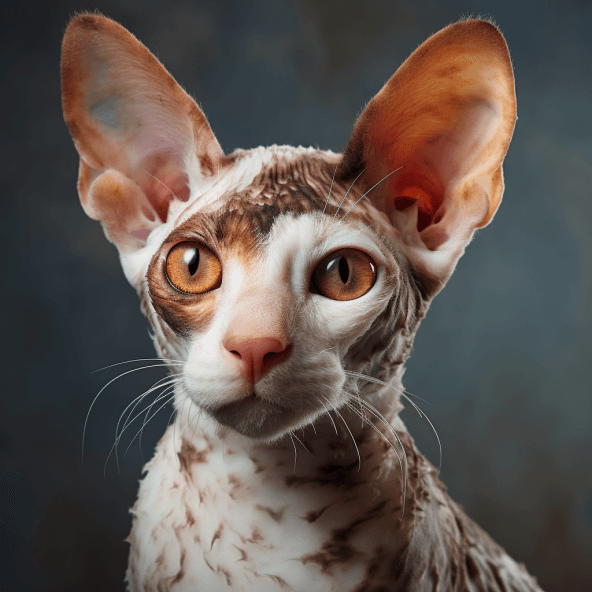
Training and Behavior Issues in Cornish Rex
Trainability and Learning Capacity
Cornish Rex cats are quite smart and trainable. They enjoy interactive games that stimulate their brains and can even be trained to perform tricks or play fetch. However, their independent streak means they value their freedom and might not always comply with training immediately.
Common Behavior Issues
They can become a bit too ambitious when it comes to exploring – jumping on top of furniture or knocking over items. They also crave attention and might resort to mischievous behaviors if they feel ignored.
Tips for Effective Training
While training Cornish Rex cats, it’s crucial to use positive reinforcement methods. Rewards-based training usually yields the best results. Firm, consistent rules and plenty of praises when they do well should guide them in the right direction.
Breeding and Kittens
Breeding Information and Tips
Breeding Cornish Rex cats requires a good understanding of their genetics to ensure the best traits are passed down while promoting genetic health. Always work with reputable and knowledgeable breeders who prioritize the well-being of the animals.
Newborn Kittens Care
Newborn kittens need lots of warmth and feedings every two hours. Early socialization is also crucial for their development. Each kitty should be handled gently and frequently to get used to human interaction.
When to Separate Kittens from Their Mother
It’s typical to separate kittens from their mother around the age of 12 to 16 weeks. By this time, they would have learned essential social and behavioral skills and be ready to go to their new homes.
Cornish Rex and Allergies
Reasons for Hypoallergenic Claims
You may often hear that the Cornish Rex is hypoallergenic, primarily due to their lack of an outer coat. It is believed that their unique fur produces less Fel d 1, the protein that many people are allergic to, which results in fewer allergic reactions.
Experiences and Studies
However, experiences and studies have found that no cat can be truly hypoallergenic. People with severe allergies can still have reactions to Cornish Rex cats, although they might be less severe compared to other breeds.
Precautions for Allergic People
For those with cat allergies who still desire a Cornish Rex’s companionship, meeting the breed beforehand to see how they react is a good precaution. You can also invest in allergy-reducing products, maintain a clean home by vacuuming often, and restrict the cat’s access to certain areas like the bedroom.
Adopting a Cornish Rex
Qualities to Look for in a Good Breeder
When looking for a Cornish Rex, it’s important to look for a reputable breeder who conducts health checks and provides a loving, healthy environment for the cats. They should be knowledgeable about the breed and able to answer your questions.
Cost of Adopting
The cost to adopt a Cornish Rex can vary, but be prepared that they’re generally more expensive than mixed breed cats owing to their rarity. Prices can range from several hundred to a few thousand dollars.
How to Prepare for a Cornish Rex
Before bringing a Cornish Rex home, make sure your home is cat-proofed by securing loose wires and removing any toxic plants or substances. Consider purchasing a scratching post, cat toys, and a comfortable bed for the cat’s arrival.
Living with a Cornish Rex
Space Requirements
Despite their active nature, Cornish Rex cats don’t require a large living space. If provided with plenty of vertical spaces like shelves or cat towers for climbing, they can thrive even in smaller apartments.
Interaction with Family Members
A Cornish Rex will readily immerse itself in your family life. They’ll love to accompany you, be it on the couch watching TV or ‘helping’ with the chores. They often do well with children and other pets but remember to always monitor younger kids to ensure gentle handling of the cat.
Common Household Dangers and How to Mitigate Them
Common household dangers for Cornish Rex cats include breakable objects that can be knocked over and small items that could be a choking hazard. Ensuring a safe, clean environment with plenty of cat-friendly spaces would create a comfortable living atmosphere. Also, remember that this breed should be kept indoors due to their sensitivity to cold. If you provide them with a loving and interactive environment, your Cornish Rex will be a loyal and entertaining companion who’ll keep your life full of joy and excitement.

